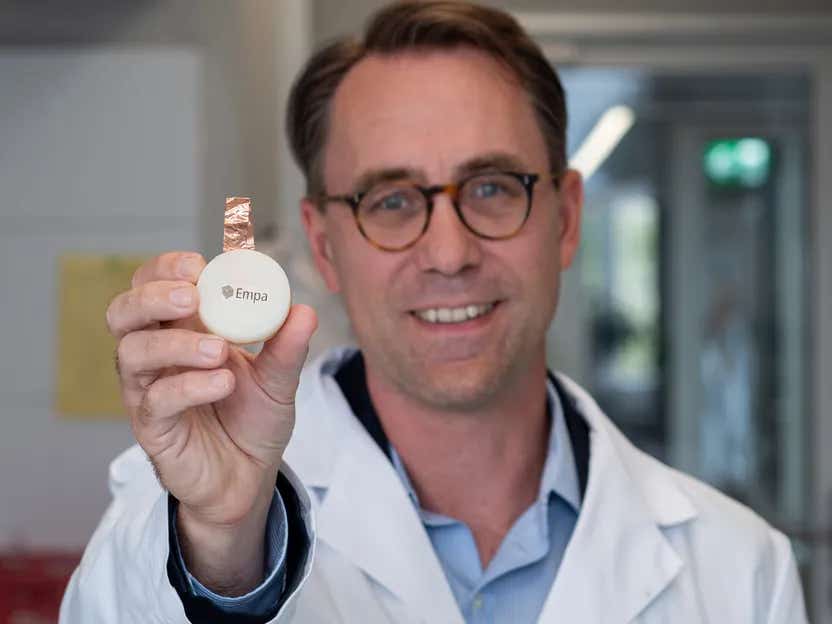The Surprising Benefits of Cinnamon for Brain Health
Pancakes, sweet potatoes, freshly baked cookies, and countless other foods can instantly be enhanced with a dash of cinnamon

[Jan. 8, 2024: JD Shavit, The Brighter Side of News]
Pancakes, sweet potatoes, freshly baked cookies, and countless other foods can instantly be enhanced with a dash of cinnamon. (CREDIT: Creative Commons)
Pancakes, sweet potatoes, freshly baked cookies, and countless other foods can instantly be enhanced with a dash of cinnamon. Throughout history, not only has cinnamon been used as a sweet-and-citrusy spice for added flavor, but it's also been touted to have medicinal properties, according to the National Center for Complementary and Integrative Health.
As a supplement, cinnamon is said to help support our digestive health and potentially benefit individuals diagnosed with diabetes. What's more, cinnamon may also have health benefits to offer our brain, specifically when it comes to Alzheimer's prevention.
The Alzheimer's Challenge
Approximately 1 in 9 older adults at least 65 years of age are affected by Alzheimer's disease, reports the Alzheimer's Association. In 2023, that's roughly 6.7 million Americans, with this number expected to climb to about 13 million by 2050.
Related Stories
Although there is currently no cure for Alzheimer's, cinnamon has been the subject of study for a number of years now, predominantly in animal studies. Research results have shown the spice to have potentially promising results in disease prevention.
Researchers from a 2013 study published in the Journal of Alzheimer's Disease discuss how cinnamon contains two key Alzheimer's-fighting compounds: cinnamaldehyde and epicatechin.
Both of these compounds may help protect against the formation of what can be thought of as "knots" in our brain cells. These knots are caused by the clumping together of what's called tau proteins and are often seen in greater numbers in Alzheimer's patients.
Chemical structure of Cinnamaldehyde. (CREDIT: Creative Commons)
Cinnamaldehyde, the compound that gives cinnamon its signature aroma, can protect against this accumulation of tau proteins by keeping them safe from oxidative stress, much like how a hat can help protect against sunburn damage, the researchers explain. Similarly, epicatechin harbors antioxidant properties, which further supports the health of our cells. "Wouldn't it be interesting if a small molecule from a spice could help? [P]erhaps prevent it, or slow down the progression," said Donald Graves, one of the authors of the study.
A Delicate Balance: Cinnamon Consumption
When it comes to reaping the potentially neuroprotective benefits of cinnamon, less is more, the researchers caution. Because the majority of studies around cinnamon and Alzheimer's disease have only been conducted on animals, the research still has a long way to go. Therefore, experts suggest consuming no more than the average amount a person would normally cook with.
Cinnamon has many other health benefits, including anti-inflammatory properties and blood glucose regulation. (CREDIT: Creative Commons)
Consuming cinnamon in excess could potentially increase one's risk of hypoglycemia, allergic reactions, liver damage, or cancer due to cinnamon's coumarin content.
Holistic Approaches to Alzheimer's Prevention
To help reduce one's susceptibility to Alzheimer's disease, the Alzheimer's Association suggests getting plenty of exercise, managing high blood pressure and high cholesterol levels, protecting yourself against head injury, and maintaining a healthy diet that focuses on whole grains, vegetables, fish, and beans while limiting one's consumption of red meat, sugar, sodium, and saturated fats.
To help reduce one's susceptibility to Alzheimer's disease, maintain a healthy diet that focuses on whole grains, vegetables, fish, and beans while limiting one's consumption of red meat, sugar, sodium, and saturated fats. (CREDIT: Creative Commons)
While the research is in its early stages, cinnamon's potential in mitigating the devastating effects of Alzheimer's disease offers hope in the fight against this growing health crisis. However, it is crucial to approach cinnamon consumption with moderation, keeping in mind the potential risks of excessive intake.
As we continue to delve deeper into the mysteries of Alzheimer's disease, the quest for effective prevention and treatment strategies remains an ongoing scientific endeavor.
Note: Materials provided above by The Brighter Side of News. Content may be edited for style and length.
Like these kind of feel good stories? Get the Brighter Side of News' newsletter.
Joshua Shavit
Science & Technology Writer | AI and Robotics Reporter
Joshua Shavit is a Los Angeles-based science and technology writer with a passion for exploring the breakthroughs shaping the future. As a contributor to The Brighter Side of News, he focuses on positive and transformative advancements in AI, technology, physics, engineering, robotics and space science. Joshua is currently working towards a Bachelor of Science in Business Administration at the University of California, Berkeley. He combines his academic background with a talent for storytelling, making complex scientific discoveries engaging and accessible. His work highlights the innovators behind the ideas, bringing readers closer to the people driving progress.



